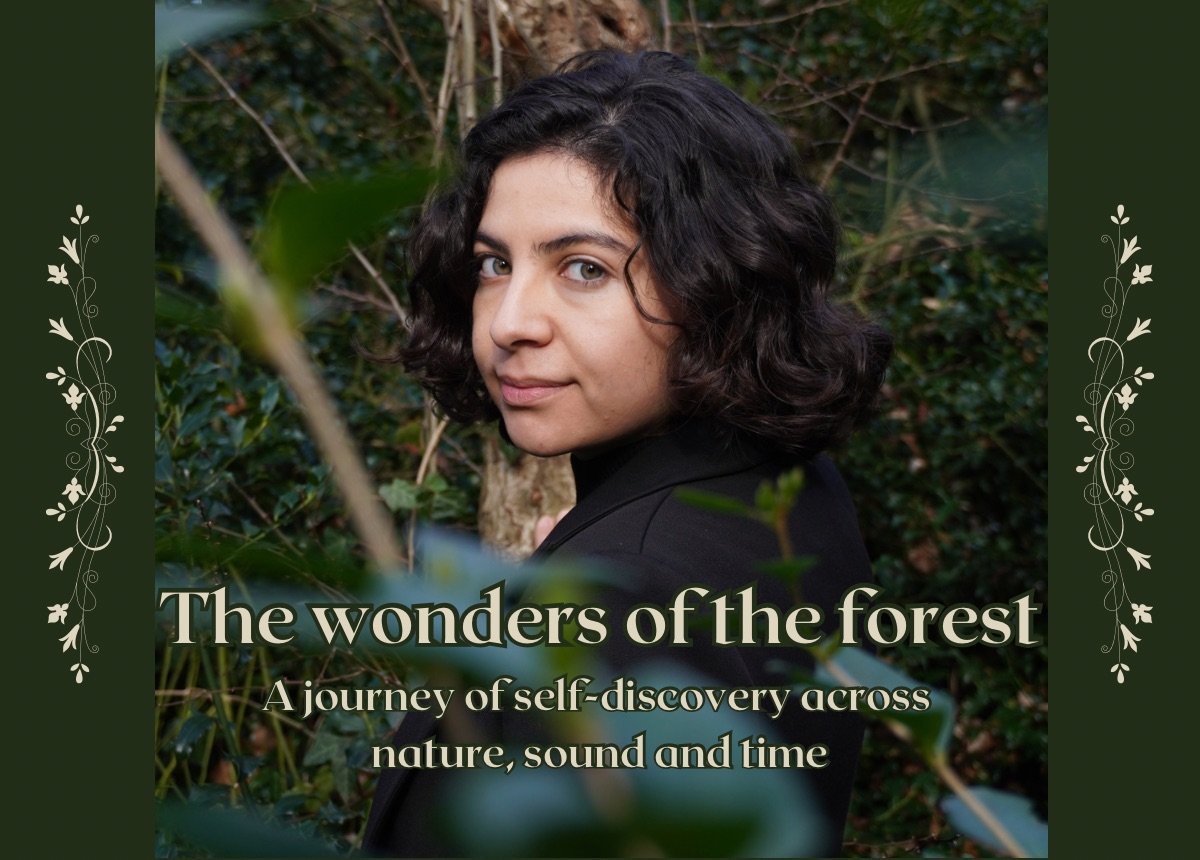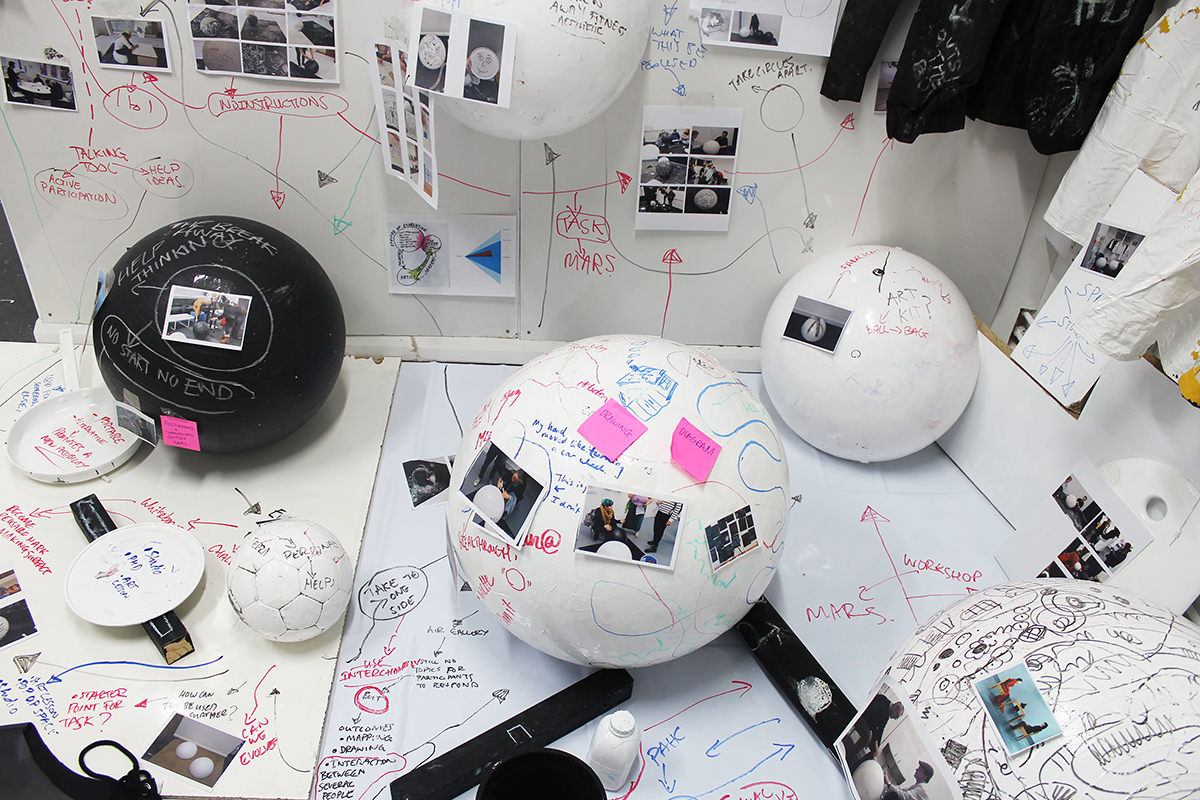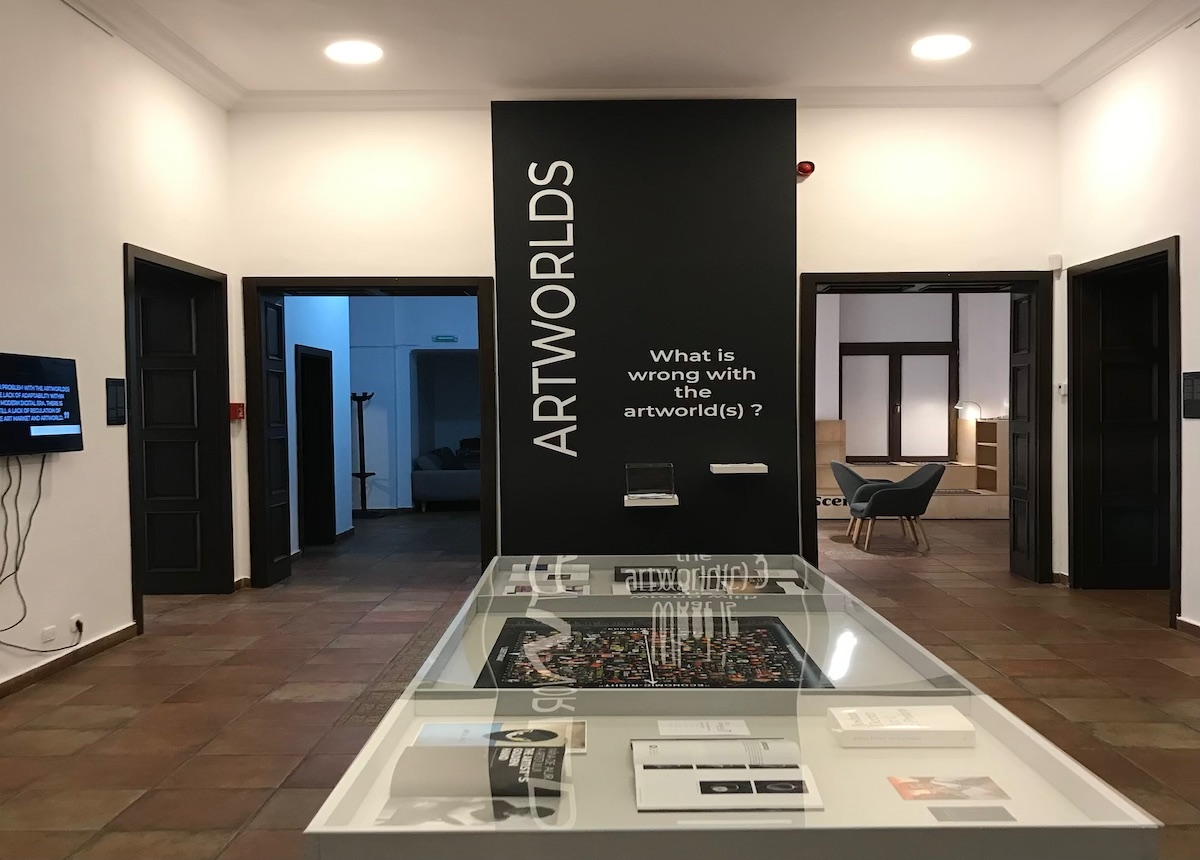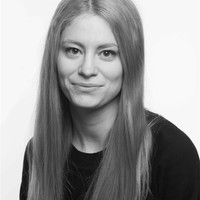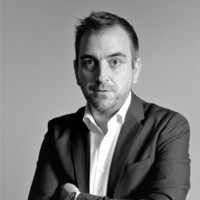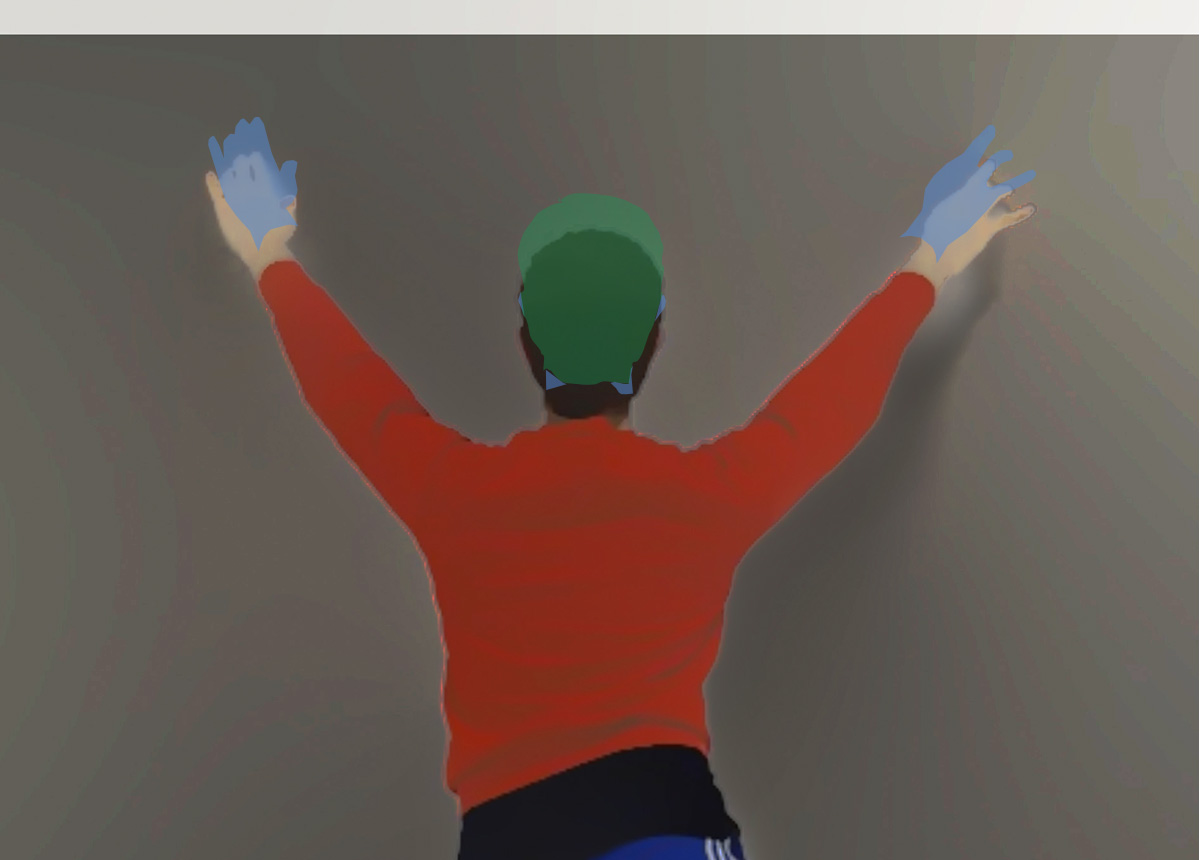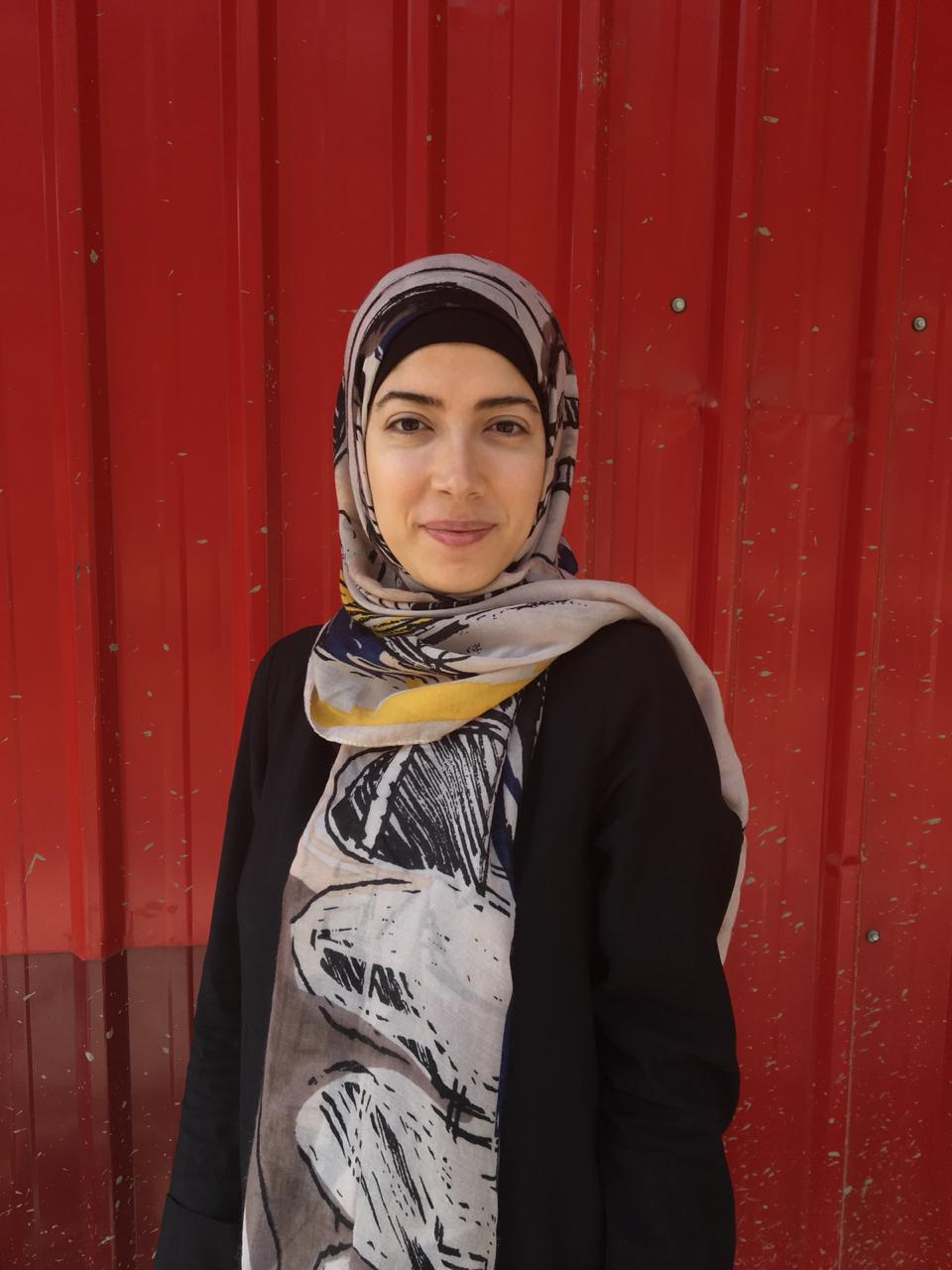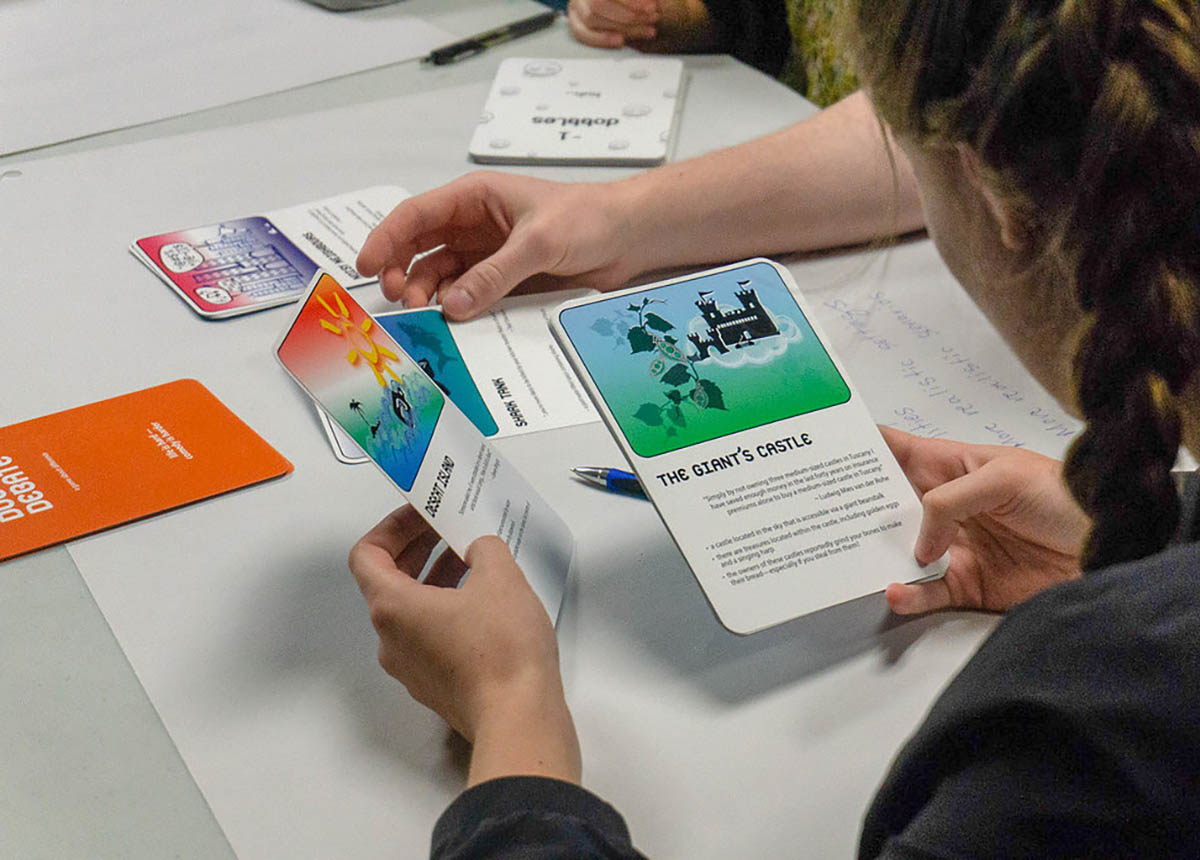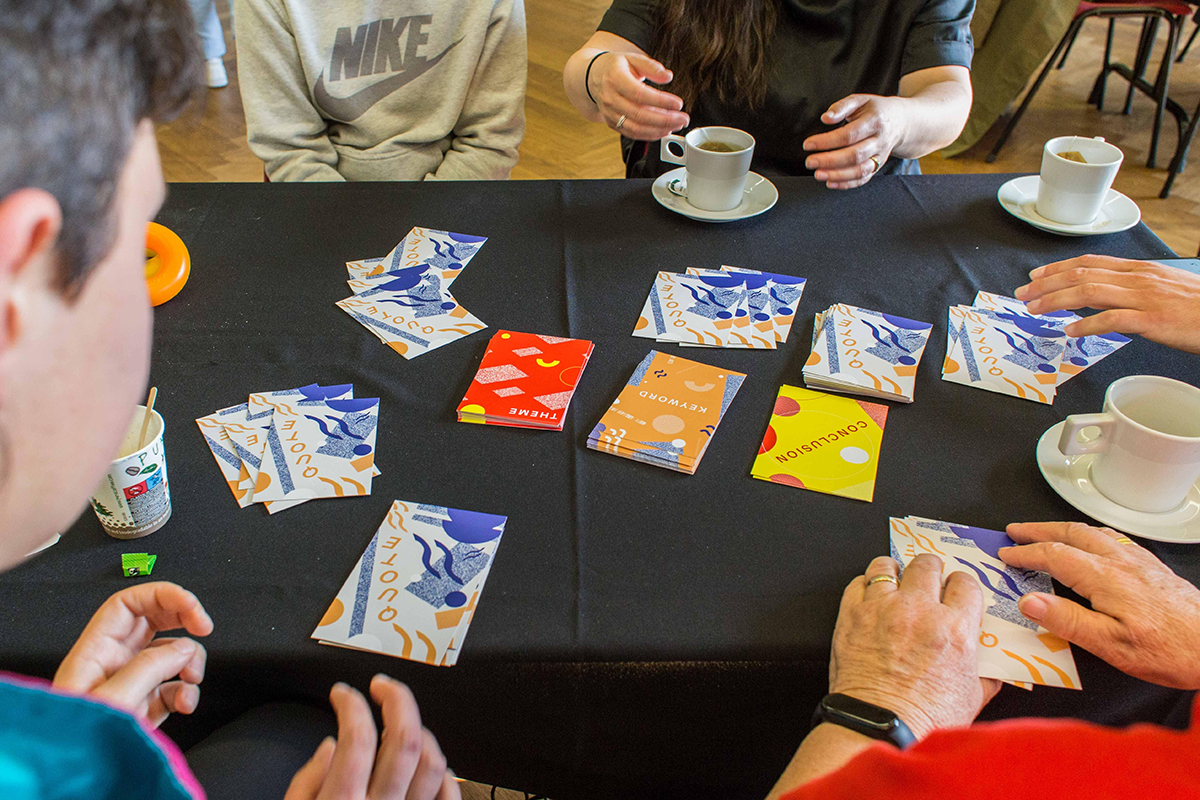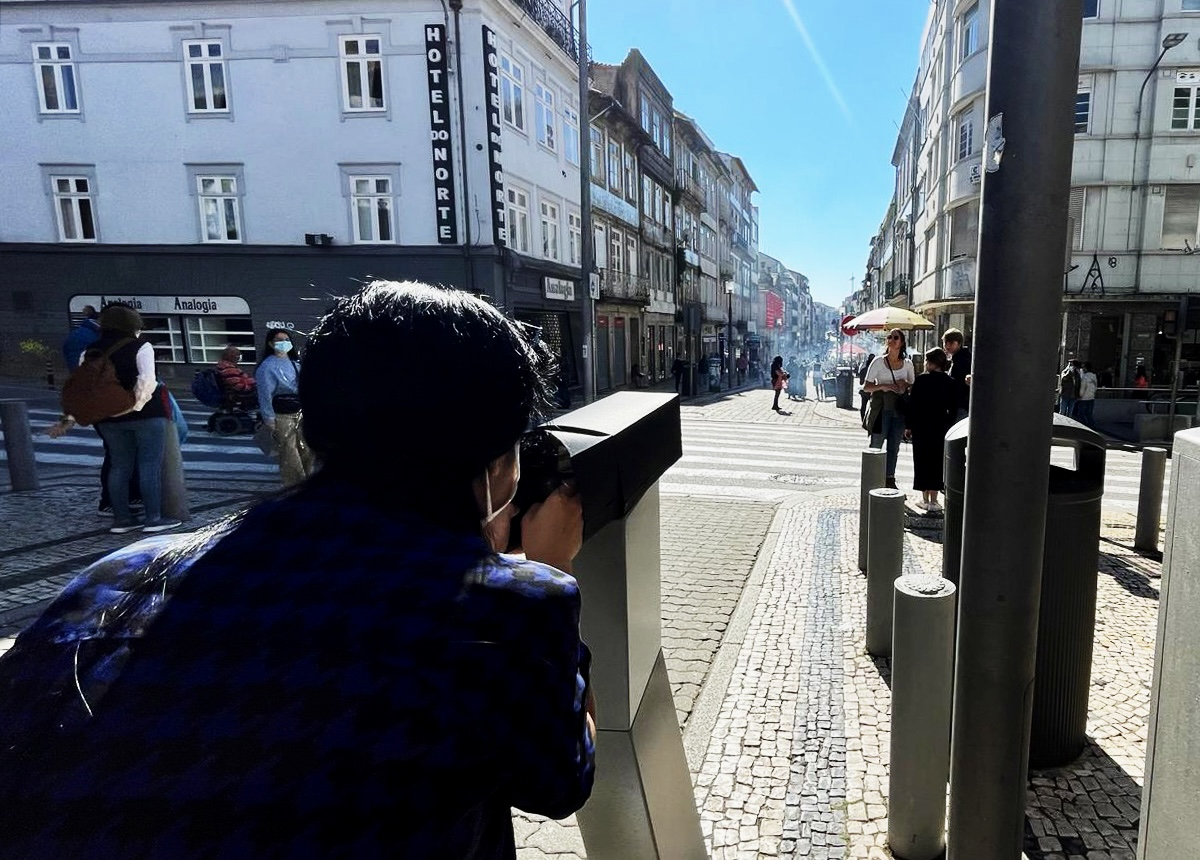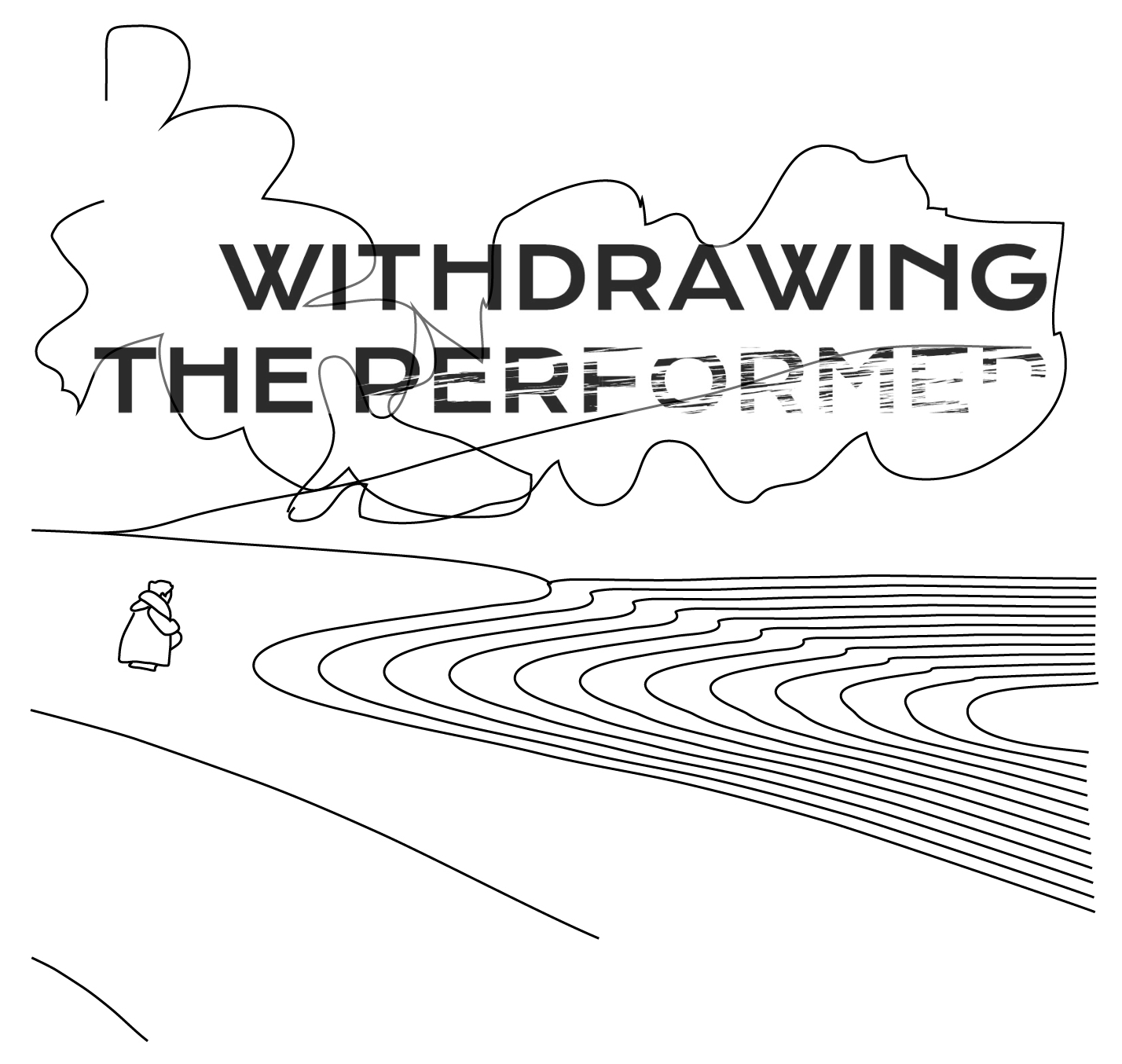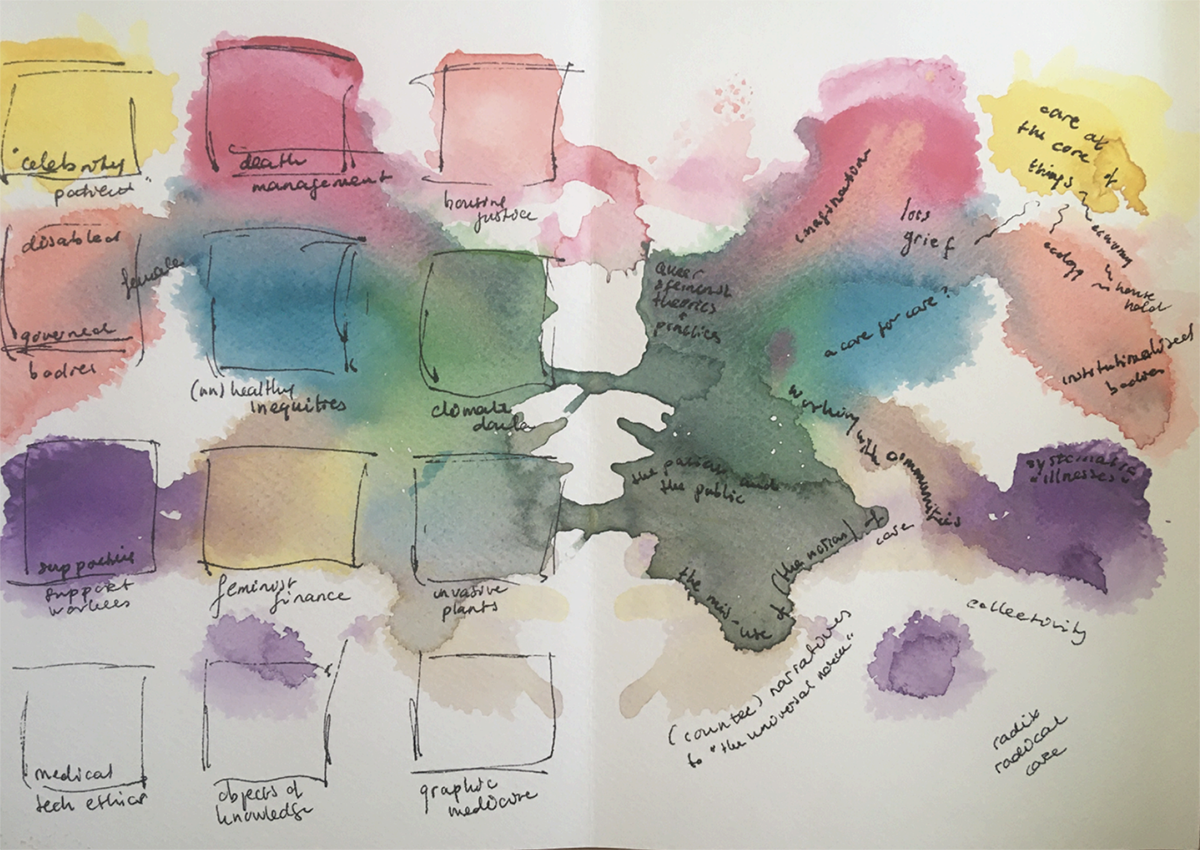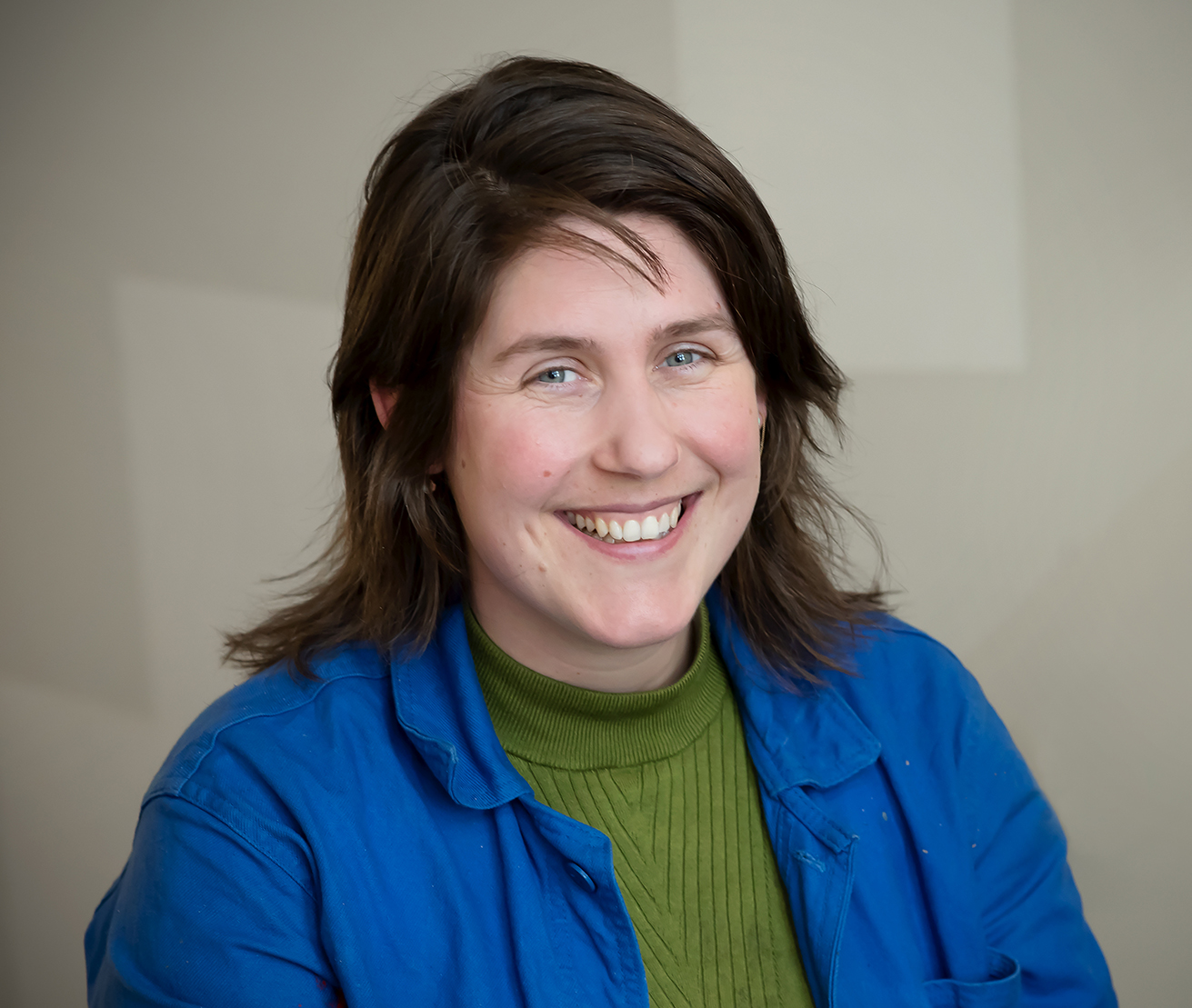SAR Forum Tilburg 2024
SIG 8: Facilitating: Inaugural Meeting
Facilitating practices in the arts are under-theorized, even though they occur widely, as part of devised theater and the performing and performance arts, and across Fluxus, interactive, relational, community-based and socially engaged art. Facilitating practices in the arts intersect with those in design, pedagogy, art therapy, community organizing and advocacy, and even professional facilitation and coaching, all of which work through multiple, mature methodologies, but unlike facilitating in the arts focus on outcomes.
Contributors to the inaugural convening of the SIG 8: Facilitating share a realization that facilitating asserted itself at a central position in our practices, even before we recognized and named it. There is a rising need to grasp facilitating in the arts methodologically, through its emergent techniques and as a way of knowing, for example by devising laboratories that trace situated and embodied perception, co-creation and articulation. There is interest in locating facilitating as an instigator of institutional imagination by thinking facilitating in conjunction with ethics and agency, and also with vulnerability, joy and communitas.
We are looking forward to spending the morning with each other, sharing our practices, and ending the meeting by co-devising an overview of what is underway, and an outlook of what may come next. The convening is open to all Forum attendees, who may also join into all activations and the concluding exercise.
Thursday April 11, 9:30 - 1:30
Fontys Academy of the Arts, room: The Chapel, Bisschop Zwijsenstraat 7
Welcome + Introduction
9:30 - 9:45 Adelheid Mers and Marija Griniuk
Activation
9:45 - 9:55 Andrew Champlin: Soften and Make Space
Keynotes
9:55 - 10:20 Nohad ElHajj: Facilitation Meets Art
10:20 - 10:45 Gabriela Milyanova and Nienke Scholts: Facilitation as a Care Practice of Being in Relation
Break + Activation
10:45 - 11:00 Kevin Boardman: Thinking creatively with reusable 3D surfaces
Publications
11:00 - 11:15 Charlotta Ruth: Participatory Sense-Making
11:15 - 11:30 Sophie Hope: Eyerolls, interruptions and tightened lips: the art of meetings in socially engaged practices
Break: 11:30 - 11:40
Lightning Round Adjacencies
11:40 - 11:50 Diana Acosta: The Wonders of the Forest
11:50 - 12:00 Lavinia Cazacu: Intersecting Artworlds: Analyzing Challenges Through Participation
12:00 - 12:10 Lynne Heller: Co-creating with Disability Communities
12:10 - 12:20 Camila Mangueira and Fabrício Fava: Critical design practices for rethinking media ecologies
12:20 - 12:30 Nadja van der Weide: Facilitating mediated dialogues
Break: 12:30 - 12:45
12:45 - 1:30 Co-creating a Map of “Facilitating” and projecting next steps for the SIG Facilitating
Parallel Digital Introductions: view on demand
Request membership for the SIG 8: Facilitating on our portal page if you would like to receive calls for future events, share resources, initiate your own collaborations, and more.
A SIG is a special interest group, one mechanism by which the Society for Artistic Research (SAR) supports cooperation and communication. SIGs are invited to contribute to the annual SAR conferences, and have the ability to host a portal on the Research Catalogue (RC). Within an RC portal, SIGs are able to host a publication, and sub-groups may independently pursue specific inquiries. SIG membership is informal and does not require SAR membership, but an RC account is needed to create content. SIGs are free to organize in any way that supports member’s research. Conference/Forum participation through the SIG is included in the attendance fees.
THE WONDERS OF THE FOREST
Old-fashioned, distant, difficult… This is the typical perception of classical music nowadays. Even the music written in our frenetic century struggles to find its opportunities in concert programs. However, some new performative tendencies across Europe look to reconnect with the audience by breaking expectations and traditional formats of classical music concerts.
One of them is The Wonders of the Forest. This performance project aims to exemplify how modern performers can renew their connection with the audience by introducing innovative perspectives, such as a powerful artistic concept, interdisciplinary elements, and their deeper personal involvement in the production process. It offers a classical music performance as a journey through the forest, which is structured like a tale, and supported by the guidance of a narrator, the projection of designed images and electronic sounds for the most cutting-edge contemporary pieces.
We will discuss how this performance setting can impact the audience. Furthermore, we will discover the repercussions on the performer’s role by becoming the creative source for production and performance. For example, choosing repertoire according to memories or writing and designing by themselves the original script and images of the production.
CONTRIBUTOR and CREATOR (presenting at SIG)
Diana M. Acosta is the performer, writer, manager and producer of The Wonders of the Forest. She has a long trajectory with solo and chamber music performance (Argyre Piano Duo, Sound Shapes Trio) and has been a speaker in VII Fòrum TRiCS 2013 and finalist of the PCC Practice-Based Research Prize 2023.
COLLABORATOR
Erney F. Acosta is the composer and electronics manager for the project. Besides being a renowned pianist, he is a Ferrer-Salat Scholarship holder and PluralEnsembleCompetition 2022 winner. He has premiered works for Orquesta Haendel, Coral Nova Unió, Insolitum Ensemble, among others, in Barcelona, Madrid and the Grachten Festival in Amsterdam.
Thinking creatively with reusable 3D surfaces
The activation during the SIG event merges with the recent research Expanding artistic-pedagogic mark-making: thinking creatively with reusable 3D surfaces. Attendees will engage with a whiteboard and chalkboard sculptures, exploring what facilitation means to you?
This practice-as-research merges art-thinking with interdisciplinary sources to reinvent conventional whiteboard and chalkboard surfaces into 3D forms, fostering alternative pathways in collective and individual thinking. Through sculpture, workshops, and drawing, active participation, mind-mapping, and idea generation are facilitated, proposing new methods for ideation and problem-solving.
The work challenges the normative flat whiteboard surface, attempting to transform it into dynamic, interactive spaces for creativity, exploratory communication, and open discourse. By reimagining the potential of reusable media, avenues for innovation and collaboration in artistic and facilitation contexts are opened.
This activation provides attendees with an opportunity to use these 3D whiteboard and chalkboard sculptures to expand an opening discourse in facilitation through wearing, drawing, improvising, mind mapping and other interventions.
Kevin Boardmanis an artist, educator, and researcher. He specialises in drawing, sculpture, and arts pedagogy and holds an MA by Research from Manchester School of Art. His MA focused on creating reusable 3D surfaces for radical thought and action and facilitation. Kevin's artistic interests are centred around exploring alternative modes of thinking and reimagining spaces, objects, and situations.
Website: www.kevinboardman.com
Email: kevinboardman@outlook.com
Instagram: @boardmankevin
Intersecting Artworlds: Analyzing Challenges Through Participation
Launched in 2019, What is wrong with the artworld(s)? (WWWA) serves as a platform for both artistic expression and curatorial inquiry. The project is directed towards artists, curators and art audiences and brings together their contributions materialized in answers to the question “What is wrong with the artworld(s)”. The entire research approach aims to radiograph the art scene and analyse current problems and challenges starting from an open, participatory approach, to which different actors of the scene are invited to participate, either directly in an exhibition or online. Their input has been showed in exhibitions, online platforms and is part of a research framework. This facilitative approach not only emphasizes various problematics within the art worlds but also amplifies public engagement as a central thematic concern.
The research is ongoing, gathering already more than 300 inputs which are subject to a research methodology, being categorized and coded according to recurring themes, issues, and perspectives. This process involves both qualitative and quantitative techniques, allowing for in-depth exploration of nuanced narratives while also identifying broader patterns and trends.
Central to this practice is the commitment to extending the boundaries of art, fostering intersections that engender problem-solving.
bit.ly/whatiswrongwiththeartworlds
http://instagram.com/re.search.art/
Lavinia Cazacu (presenting at SIG)
Doctoral student, art historian, curator. University of Bucharest, “SPACE, IMAGE, TEXT, TERRITORY” Doctoral School / Centre of Excellence in the Study of Image
Working across the realms of art, curation, and theory, with a background in art history and business, I have always situated myself between domains, assuming various professional roles. I am interested in intersections, traversing infrastructures, disciplines, and domains. In my work the artistic, socio-cultural, and political realms always intertwine.
Cosmin Mitea has worked as program manager and gallerist, supporting young Romanian artists locally and abroad. He founded Seabam art gallery, an online/offline platform for international emerging artists. He developed several sustainable projects such as Artworlds Talks, The Room - Art Studio Spaces, and Bucharest Contemporary Art Fair (CAF).
Soften and Make Space
Our bodies, in their complexity, and diversity, become central to the aim of social integration for artists in academic structures. Through this activation, the question How might the facilitation of dance techniques inspire critical reflection with/in academic spaces? is raised.
Soften and Make Space guides attendees in an easy body-based sensing exercise that brings us into dialogue with entrenched Western aesthetics and decorum. Turning to our bodies as entangled focal points that construct our realities as artist researchers in academic gatherings, the exercise invites participants to anchor somatically. The exercise references the pedagogy of esteemed ballet teacher Janet Panetta, and is infused with an ethos from postmodern dance culture, which values different ways of knowing. The experience intends to expose subtle ways in which our bodies are conditioned by presumed hierarchies; technical instruction arises as a possibility to address the social integration of artistic knowledge in academic research environments and think through its practices. The exercise confronts presumed hierarchies of knowledge by gesturing toward the plurality of bodies and diversity of experiences in the space.
Andrew Champlin
PhD Candidate at the University of Applied Arts Vienna, in coordination with Zurich University of the Arts.
Andrew Champlin is a dance artist and educator researching movement techniques for contemporary performance and visual art. With a background in sociology (BA, The New School University, US) and performative practices (MA, Stockholm University of the Arts, SE) he works at the intersection of embodied research, dance pedagogy, and film.
andrewchamplin@gmail.com
Facilitation meets Art
In this presentation, I am introducing my experience in facilitating dialogue and storytelling workshops in Lebanon within the context of community building and human rights. I will share anecdotes from my process work and I will untangle the ever-growing intersections between my facilitation practice and artistic research practice. I situate both practices within the feminist notions of care, imagination and presentness. As a facilitator, I see my role as someone who opens and holds a space for others to Be and for things to emerge. This is also how I see myself as an artist. This presentation is an encounter between those two practices and a reflection on what might emerge from such an encounter.
Nohad ElHajj is a Lebanese facilitator and artistic researcher. Her artistic practice explores the different ways of being, imagining and mobilising knowledge in urban spaces. She uses printmaking, photography and walking as her main mediums. Her facilitation practice focuses on facilitating dialogue and storytelling processes.
Co-creating with DIsability Communities
This talk offers insights into the values, methods, and outcomes of co-creating with disability communities. Dobble Debate, a resource designed to encourage learners to consider their perspectives on disability, supports educators in facilitating creative and respectful discussions about difficult topics, by providing a ready-to-go decks of cards, gameplay examples and assets to develop your own educational gameplay. Throughout the process of developing the Dobble Debate toolkit, people who live with disability on a daily basis, guided the intentions, aesthetics, and ethics of the workshops. The team included the D/deaf and hard of hearing, disability advocates such as people who use wheelchairs, creators who are visually impaired, have differing abilities, autism, and the neurodiverse. The guiding principles of co-creation were developed in conversation with the ideas propagated by disability activists. Scheduling, planning, small scale groups, assistive support staff and technologies, considered feedback, along with active listening, were the keys to creating a successful and joyful program. Balancing the input of diverse groups and budgeting for inclusion were some of the challenges we faced. We were intent on ensuring that each participant was valued as an individual, rather than being viewed as a research subject. We sought relationships rather than data.
Lynne Heller is a post-disciplinary artist, designer, educator and academic. Her interests encompass both material and virtual culture. Heller completed her MFA at the School of the Art Institute of Chicago and her PhD at University College Dublin. She is an Adjunct Professor at OCAD University, Co-director of the Data Materialization Studio, Reviews Editor of Virtual Creativity, and the Co-Director, SMARTlab PhD Programme USA.
contact@lynneheller.com
Eyerolls, interruptions and tightened lips: the art of meetings in socially engaged practices.
My approach to facilitation aims to foster dialogue among diverse perspectives. I employ various methods such as time travel, role play, creative writing, collaging, dinners and card games to explore shared events and differing viewpoints. Through my practice-based research, I've utilised these methods to discuss topics such as art and politics in the year 1984, physical and emotional relationships to work and diverse perspectives on experiences of co-creation.
In this presentation, I will focus on my current book project titled "The Art of Meetings: Being Critical and Political in the Socially Engaged Art Industry”. This aims to be an illustrated intervention into histories and methods of socially engaged arts practices in Britain, through an exploration of the circumstances and conditions in which artists and others meet. I will introduce the key themes I am exploring and the methods I have been using to explore the embodied experiences of facilitation, delving into the affective dimensions for all involved, including myself.
Sophie Hope is a practice-based researcher and Lecturer in Socially Engaged Practice at Guildhall School of Music and Drama, London. Her work is often developed with others through the format of devised workshops exploring subjects such as physical and emotional experiences of work and diverse experiences of socially engaged art.
Critical design practices for rethinking media ecologies
The rapid and continuous technological transformations of the last decades, combined with a culture of obsolescence, are contributing to a catastrophic scenario of environmental degradation, natural resource consumption, soil pollution, and electronic waste production. The impact of the extraction and processing of resources to sustain global consumption is imposing a defuturing condition that demands urgent response and new media and mediation philosophies to help us redefine our relationship with technology. In this presentation, we will discuss two critical design approaches that we have been exploring in higher design education to challenge the “uncritical drive behind technological progress”: i) prototyping experimental visual devices for facilitating “thinkering with media”; and ii) playing a card-based game for facilitating creative thought and imagining media. Through these practices, students are invited to reflect on media culture by formulating and testing hypotheses in a playful experience of reflection in action.
Fabrício Fava (presenting at SIG) is a multidisciplinary designer and Junior Researcher at i2ADS — Research Institute in Art, Design and Society (https://i2ads.up.pt/en/), where he promotes research through design. As a moderator of the interest group in Ludic Interfaces and Speculative Design (iLudens), he has been exploring playful methodologies and expanding the idea of ludic design as a means to develop creative thinking. RC profile
Camila Mangueira is an artist, researcher, and designer. Her work intersects creative processes, media archaeology, and critical design. With a background in communication and semiotics, she is committed to developing a media philosophy and critical practice addressing the impact of technological advances. Mangueira is an integrated researcher at the i2ADS (FBAUP).
WITHDRAWING THE PERFORMER was a one-year pilot research project looking at facilitating participation and specifically the role of the facilitator inside participatory performative practices. The paper Withdrawing the Performer – Facilitating Participatory Sense-Making, is co-written by project leaders Charlotta Ruth & Jasmin Schaitl and the collaborator Imani Rameses. I will describe how we through borrowing and expanding the concept of participatory sense-making from social cognition, could analyze how process based sense-making between participants and a situation is facilitated. As a framework, participatory sense-making supported us in creating analytical distance, at the same time, we were surprised to notice that many researchers coming from scientific practice speak on social interaction and participation without operating on a socially engaged level. The research is in the first stage but I am keen to provide our first thoughts on how participatory performative practices can function as a research environment for understanding what constitutes the “social.”
WITHDRAWING THE PERFORMER was funded through Angewandte Programm for Inter- and Transdisciplinary Projects in Art and Research (INTRA) and the paper is published in the peer-reviewed journal Reposition, Journal of reflective positions in Art & Research, Vienna 2024 (in press).
Charlotta Ruth (presenting at SIG) is a facilitator of choreographic and ludic structures in artistic encounters, feedback and peer to peer exchange. Ruth received her PhD in Artistic Research in 2022, guest lectures at the department for Applied Human Rights and has been part of founding the Angewandte Performance Lab at the University of Applied Arts Vienna charlottaruth.com
Imani Ramses serves her community as a cognitive scientist and artistic researcher. She received her master’s degree in Cognitive Neuroscience at the University of Vienna and is currently a PhD candidate at the University of Applied Arts Vienna. Rameses has presented her work at ImPulsTanz, SAR, and conferences at Harvard University and the University of Johannesburg. imanirameses.squarespace.com
Jasmin Schaitl is a visual artist developing participatory, performative settings that integrate approaches from contemplative practices, engage the sense of touch, and enable re-experiencing memories. Together with Daria Lytvynenko she co-leads the EU funded Culture Helps project “Розповіді Присутностей / Narrative Presences”, lectures facilitation and has been part of founding the Angewandte Performance Lab at the University of Applied Arts Vienna. jasminschaitl.com
Facilitation as a Care Practice of Being in Relation.
As part of the Care Ecologies Research group at ARIAS Amsterdam - that explores how care is practiced as/in an ecology - Nienke Scholts and Gabriela Milyanova, share experience in facilitating trusting and care-full exchanges between group members across disciplines. Nienke’s artistic practice is dramaturgy, she is also programme coordinator of ARIAS and the host of the Care Ecologies group, and Gabriela’s artistic practice is facilitation within climate emergency.
As facilitators that are involved in the forming/becoming of groups that do collaborative artistic research, we often have to navigate dynamics between (conflicting) individual and collective needs, agenda’s, methods, abilities, interests, and so on. This made us curious about the interdependent care relation that is possibly needed between researchers (and potentially their non-human companions and study materials) in order to become, and research as, an ecology. How, for example, to create space for each specific researcher to feel acknowledged and to develop their work, without creating an atmosphere of competition, but rather, an understanding that they carry the group as much as it carries them? For SIG 8, we will activate questions around facilitation as a care-practice of being in relation. Gathering responses in the form of 5 minute drawings with one-sentence descriptions, we hope to exchange insights on how groups might facilitate the individual researchers they are made of, but also, how researchers facilitate the groups they form.
Gabriela Milyanova is an inter-relational artist, designer, and educator working in the field of art and climate change. She sees facilitation as her artistic practice - creating dialogic space for open-ended conversation on climate change with the aim to depolarize and nurture a sense of togetherness. Facilitating as an artistic practice for her entails operating from the artistic attitude of creativity, openness and willingness to listen to the other as a way to explore together. She believes that this collective realization of our interconnectedness is crucial, as the ecological crisis requires a mental shift towards ecological consciousness in which the idea of an ecosystem has to become our central metaphor: seeing the world as a web of interconnections.
Nienke Scholts practices dramaturgy in manyfold collaborations with (inter)national performance artists; at Veem House for Performance (2013-2019); as a research fellow of THIRD at Amsterdam University of the Arts (2018-2022); and as ARIAS’ programme coordinator (since 2019). Her research on dramaturgies of work in artistic practice focuses on the generative potential of exhaustion, darkness, and pausing. The audio piece This Walk is A Pause, developed in collaboration with sound designer Femke Dekker in 2022, is her most recent artistic work. In 2018 she curated the publication series Words for the Future, and she was a Saari Residency grant receiver and resident in 2019. Nienke is often invited as a guest tutor, assessor, or lecturer within art schools and universities. Currently, she is developing Pausing Partners (working title) an interactive tool for bringing pausing practices into individual andcollaborative ways of working. She loves to draw and to walk.
